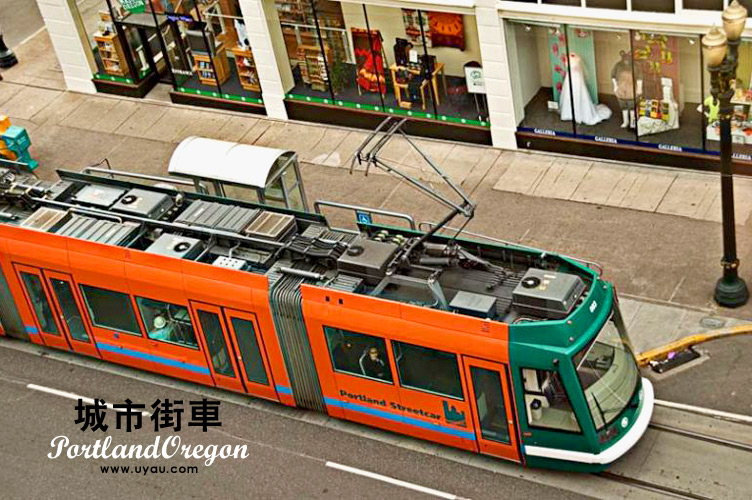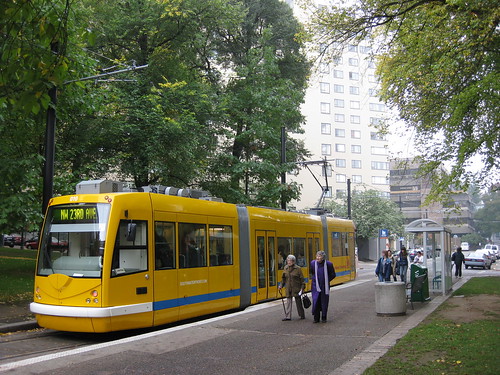Cordish thinks it would be.... DISASTROUS.
I think it is time for someone to take their concerns seriously.
When one thinks of disgusting urban disaster, what always comes to mind? Portland. And since our project is so similar to Portland's famous streetcar, I thought it might be useful to highlight what a disaster it has been, lest we are destined to make the same mistakes and leave our city looking more like Portland.
Pedestrian Nightmare
Cordish (and the Sprint Center) are very concerned that the streetcar would make the downtown environment uncomfortable for pedestrians. In the picture above, you can see how disastrously inhospitable the streetcar makes the city streets. While the streetcar will come along ever few minutes, consistently, on a fixed path, and utilize the latest safety technologies, it will surely be more threatening to pedestrians than a constant stream of cars and trucks. Even worse, the streetcar could mean even fewer pedestrian-friendly cars on the road. Instead of people driving home from bars and events, people could start using a streetcar. At least when drivers are drunk and careening toward pedestrians, one can tell by their erratic driving and swerving. On rails, the streetcar won't swerve, providing no warning, and will surely plow everyone down. The level of destruction can't even be imagined.
Vibrant Streets and Economic Development
This stark scene is NW 23rd St in Portland, along the northern end of the streetcar route. Don't be fooled by these adorable boutiques. They are stealing money from residents and tourists by providing products and services they want and then taking their money in exchange. This is fundamentally un-American and economic development in downtown would be... catastrophic. Giving people more reasons to come downtown and more reasons to support Cordish properties would be very damaging to the company.
Besides, as long as there is nowhere worth going in areas of downtown, we won't have to worry about getting there, streetcar or otherwise. What a relief.
Infill Development
Along the streetcar line, parking lots have been replaced by tax-producing buildings. That means the local government has to cash even more property tax checks when they already had a ton, and local budgets are more able to fund maintenance and improvements. Disaster. And those parkings lots are no longer vital because the streetcar provides a transportation alternative, meaning perfectly respectable parking lot owners from other cities no longer get to reap big money charging parking fees, or giving you the adventure of paying to get your car out of the tow lot. Catastrophe.





